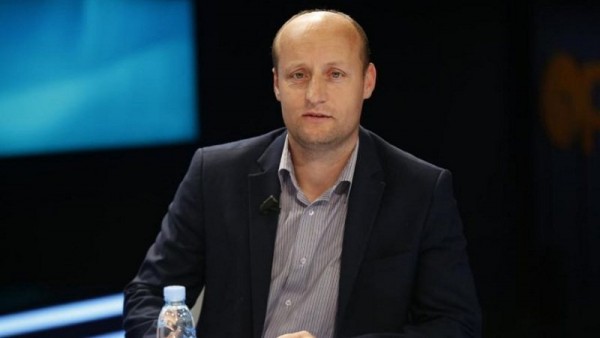IPI and its global network today denounce the decision by Russian authorities to designate Novaya Gazeta Europe, a leading independent Russian media outlet, as an “undesirable organization”.
The Russian Prosecutor-General’s Office claimed that Novaya Gazeta Europe “created and disseminated tendentious informational materials harming the interests of Russia”. Authorities also accused the outlet of disseminating “false information” on human rights violations in the country, as well as allegedly spreading “fake news” on Russia’s invasion of Ukraine, which Russian media are forbidden from reporting on based on any sources other than the Russian Ministry of Defence.
As a result of the decision, actions that authorities interpret as “participating” in the activities of Novaya Gazeta Europe have become illegal. This includes not only authoring publications or otherwise working for the outlet, but also, as the law’s application has recently shown, reader interactions with Novaya Gazeta Europe’s articles, such as liking or sharing posts by the outlet on social media.
“Official declarations by Russian authorities manipulate terms such as ‘false information’ and ‘interests of Russia’ in an attempt to justify Russia’s repression targeting independent media”, IPI Deputy Director Scott Griffen said. “Sixteen months after the adoption of ludicrous censorship laws which forced Novaya Gazeta Europe journalists into exile, readers are now also punished for maintaining any kind of relationship with Russia’s most respected independent newspaper.”
International version of Novaya Gazeta
Following the start of Russia’s full-scale invasion of Ukraine and the enactment of draconian censorship laws in Russia banning any news on the war not initially published by the Russian Ministry of Defence, Novaya Gazeta split its operations. Led by journalist Kirill Martynov, Novaya Gazeta Europe functions as the international edition of Novaya Gazeta, based abroad and free from Russian censorship.
Meanwhile, the Russia-based section of the newspaper, led by Nobel Peace Prize Laureate Dmitry Muratov, continues publishing on topics not directly related to the war, despite facing harassment from authorities.
As Novaya Gazeta Europe formally has no correspondents in Russia, the decision directly endangers readers more than it does journalists. However, the new situation also puts additional pressure on those journalists who stayed in Russia and continued working with Novaya Gazeta’s national section. A journalist who wished to remain anonymous said that Novaya Gazeta journalists in Russia are nevertheless concerned that authorities will harass them by extension.
List of ‘undesirable’ media outlets grows
Following the decision against Novaya Gazeta Europe, five independent media outlets are now considered “undesirable” by Russian authorities. In 2021, the first to receive this status was Proekt, an investigative project which helped uncover a number of corruption scandals involving top members of Vladimir Putin’s elite. Later, in February 2022, days before Russia’s full-scale invasion of Ukraine, Russian authorities declared as “undesirable” the legal entity behind iStories (known in Russian as “Vazhnye Istorii”), an outlet created in collaboration with the U.S.-based global investigative reporting network OCCRP (itself declared an ”undesirable” organization at the same time). In July 2022, investigative outlets Bellingcat and The Insider also received the designation.
Most recently, in January, authorities handed the status to Russia’s most popular news website, Meduza, in a decision which effectively forced all of the media’s correspondents in Russia into anonymous, underground work.
While nearly all independent online media outlets are now blocked in Russia, with many of their journalists also designated as “foreign agents”, most theoretically still have the possibility to legally operate in Russia.



